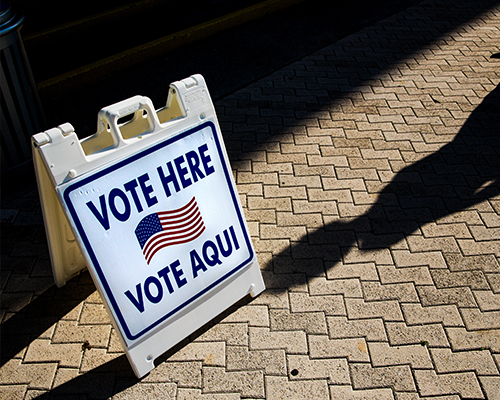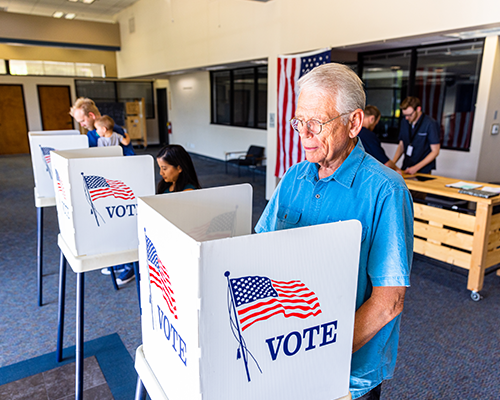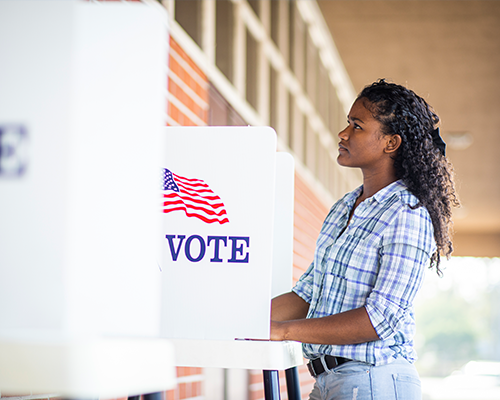
How can I tell if election information
is accurate?







In a time when there is so much information coming at us, it is important to know that some will be misleading or just plain wrong. False information can come in the form of social media posts, articles, faked videos, spam text messages or phone calls impersonating someone’s voice. You may encounter bad information firsthand, or it may be passed along to you by friends, family, or acquaintances. We are all likely to encounter false claims, so we need to work to make sure we rely on and share trusted information.
With the upcoming elections, it is important to think critically about claims we might encounter. Here are some clues that a story or claim might not be true:
- does it seem outrageous or hard to believe?
- does it come from a sketchy or biased source?
- does it lack credible evidence to back up its assertions?
- does it cause a strong emotional response?
- does it rely on opinions of people who are not real experts on the topic?
- does it come with a request for money?
Before you share a post or video, take a minute to assess your emotions and ask yourself if what you are feeling is based on fact. We are more likely to believe something is true if it aligns with our pre-existing beliefs. When in doubt, it’s a good idea to look for an alternative, trusted source before sharing a claim with others.
Why is there so much bad information about elections online?
Most false information is shared by people who don’t realize it isn’t accurate, but some false information is being spread intentionally. That’s why it is important to get information about elections from your local election official.
Some people or companies have found they can make a lot of money by spreading outrageous claims, which can be used as clickbait for ads or fundraising.
One recent study exposed a cottage industry of bogus claims and statistics that have been used to advance disproven claims about elections.
So when in doubt, think before you post. Verify claims with trusted, reliable sources – something more than a social media post or the online claims of one individual.
There are even online games that can strengthen your ability to figure out when someone is trying to deceive you. Try one:
